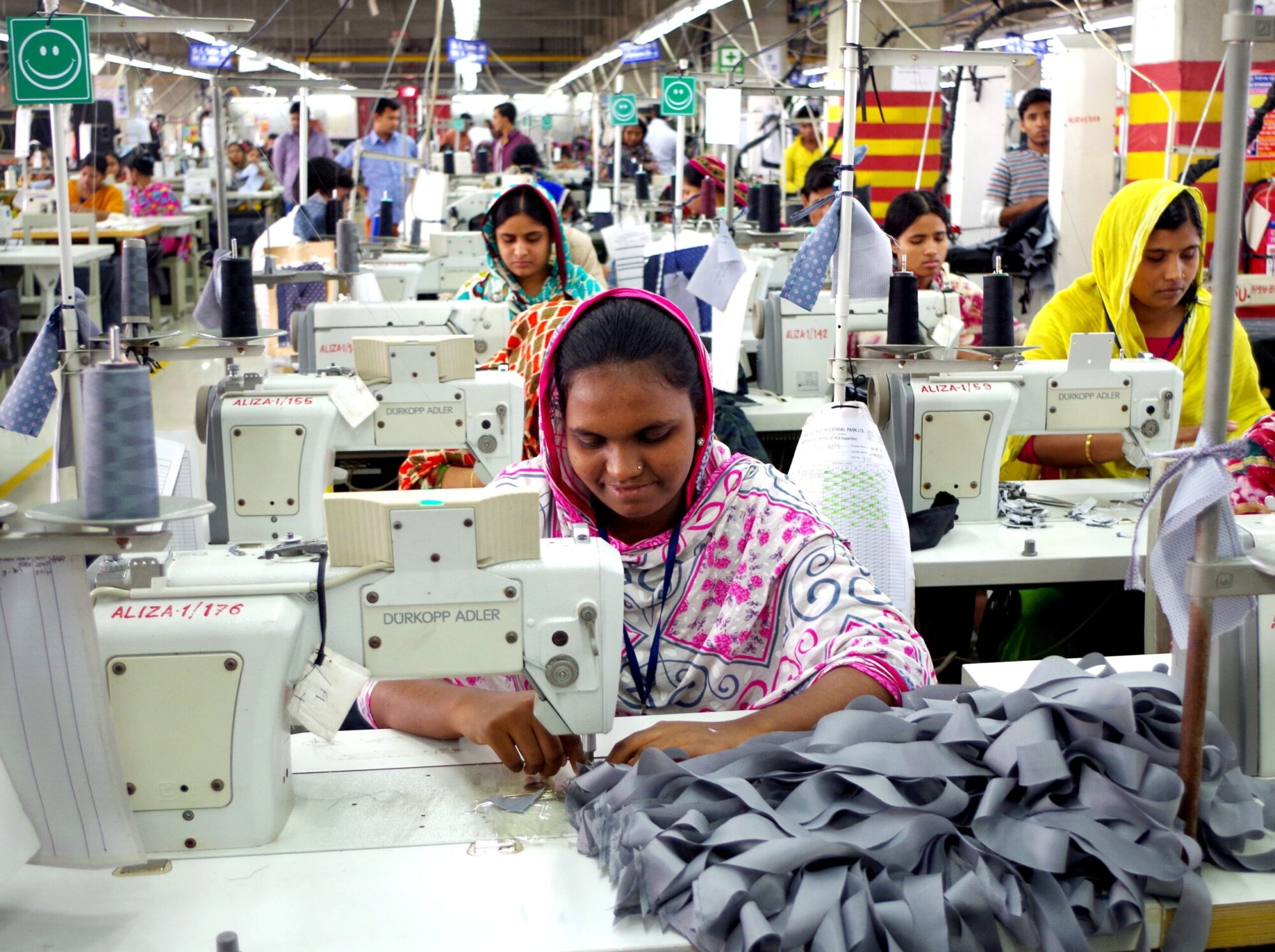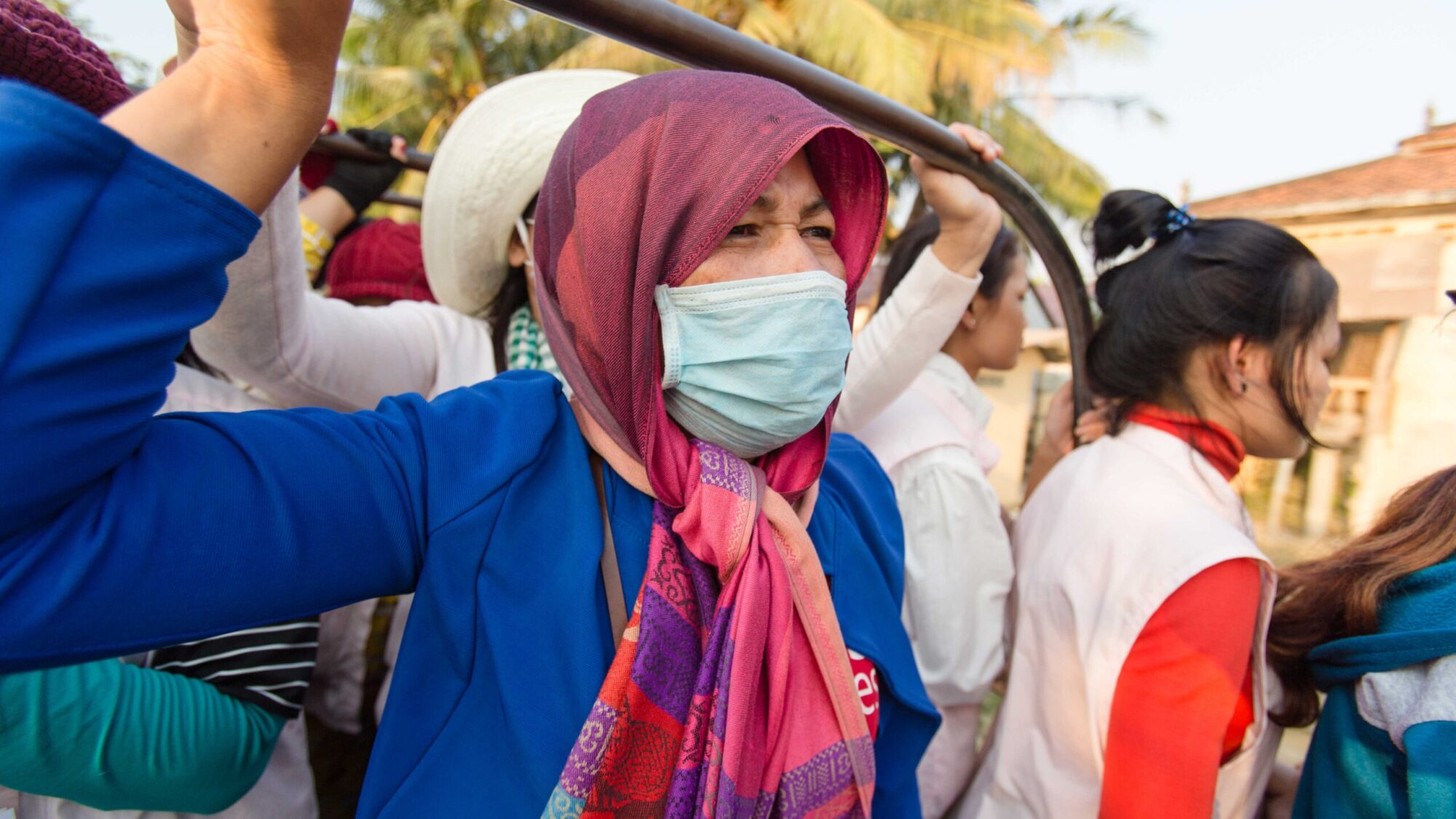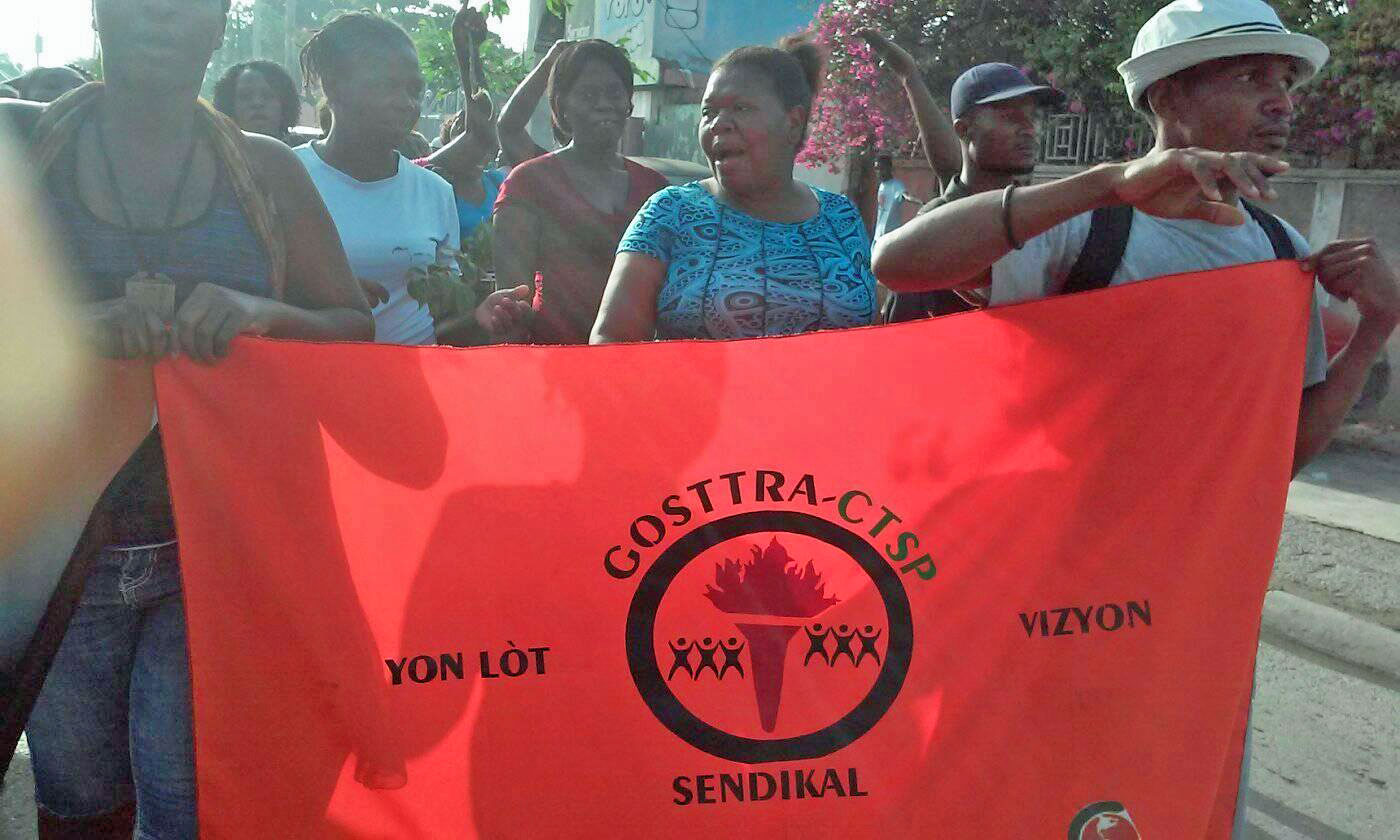Worker rights and human rights advocates are urging multinational corporate fashion brands to commit to a binding successor agreement that will continue the pathbreaking work of the Accord on Fire and Building Safety in Bangladesh, a landmark agreement that made...
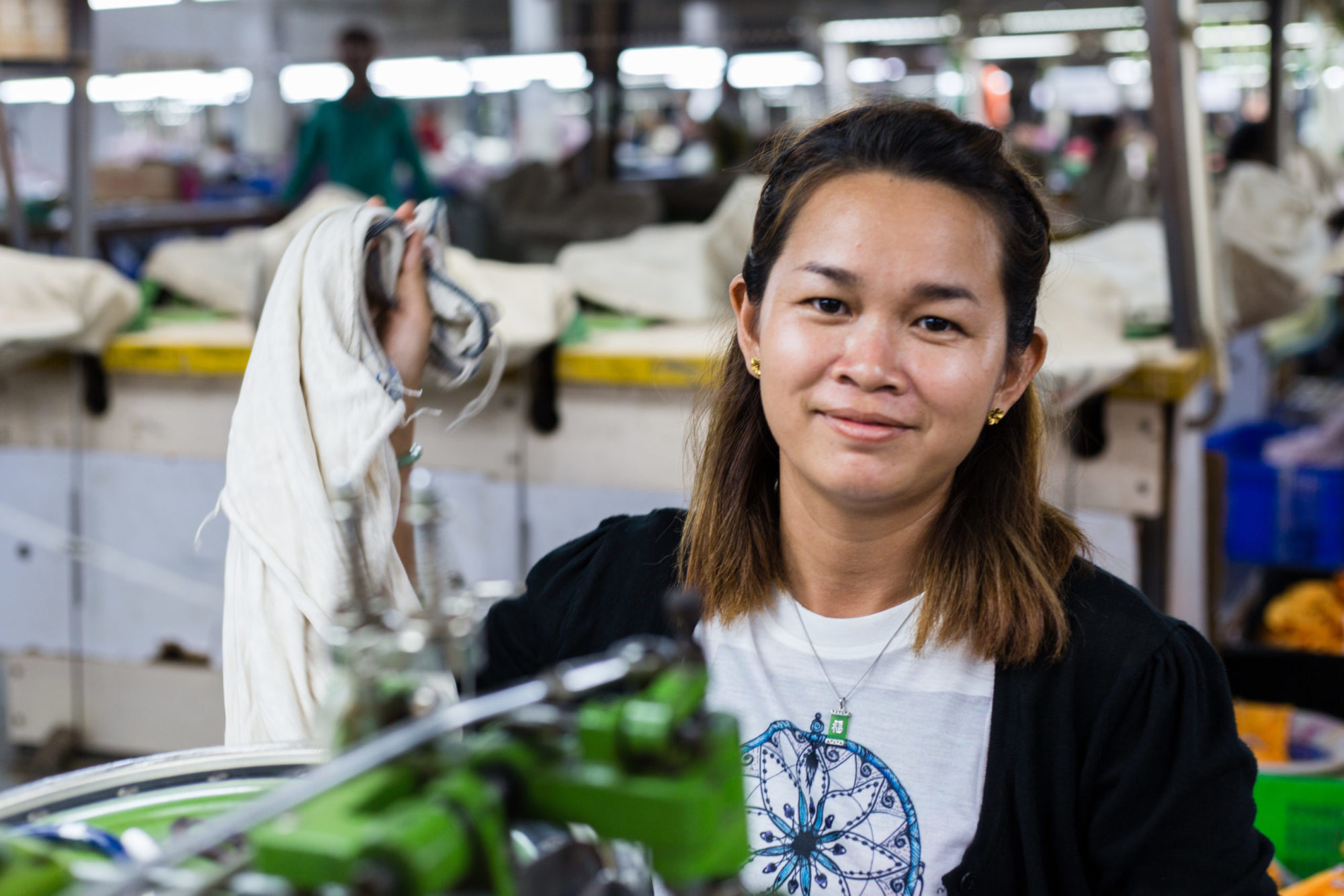
Heng Rithy, a garment worker in Cambodia, says her factory has good working conditions and she can support her family because workers have a union. Credit: Solidarity Center/Shanleystudio
Survey: Cambodian Workers Struggle to Survive in COVID-19
Half or more workers in key Cambodian industries were suspended for three or four months, and most were unable to support themselves on government aid during the pandemic, according to a new study that put hard data to the suffering of the country’s low-wage workers....
Haiti Garment Workers Negotiate Landmark Health Payment
Garment workers and their union in Haiti are hailing a landmark settlement with a factory in Port-au-Prince that provided a total of $15,480 in back pay to 1,200 workers. The compensation covers 20 percent of the amount the employer deducted from workers’ paychecks...
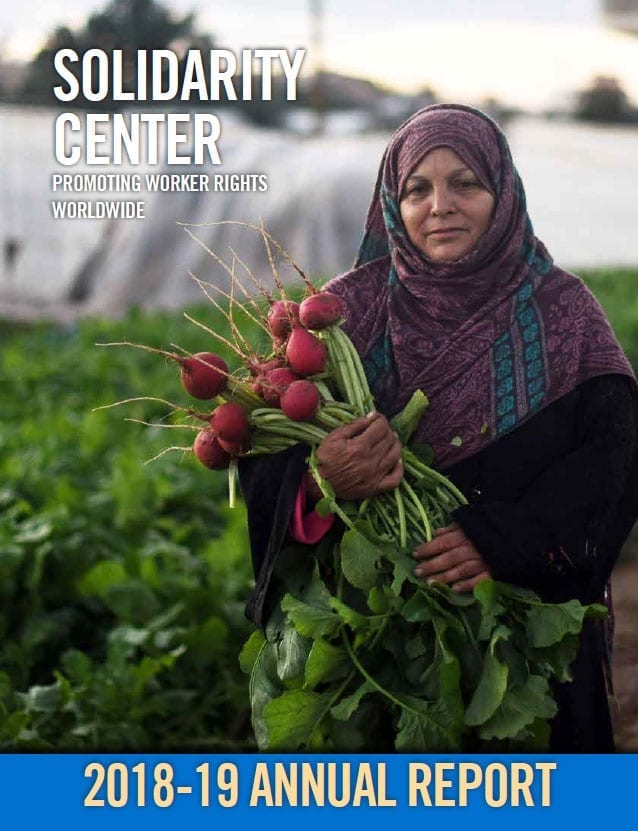
Annual Report, 2018–2019
Download here.
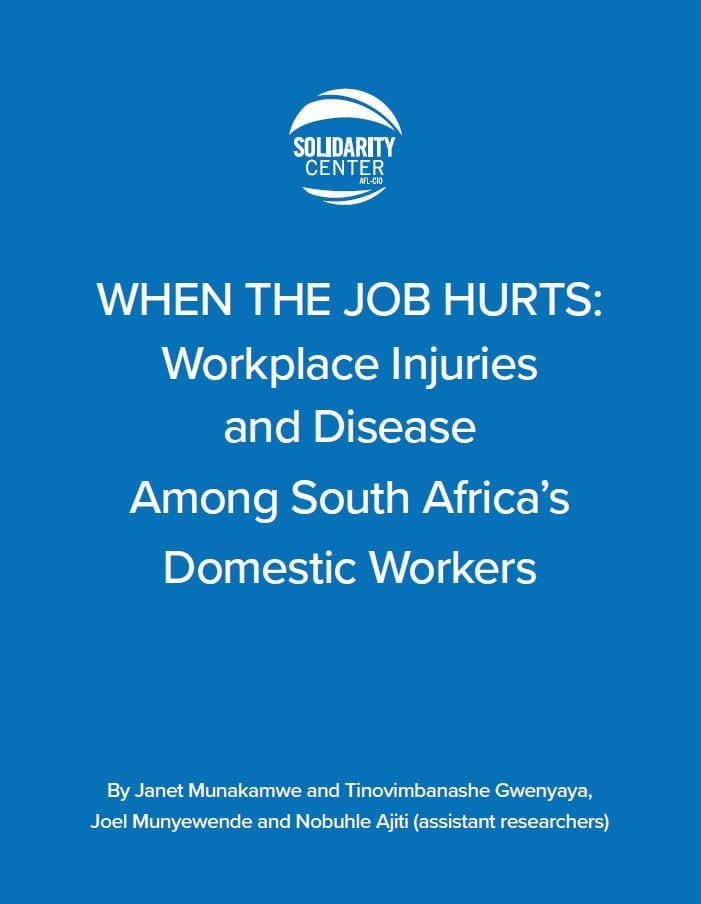
When the Job Hurts: Workplace Injury and Disease among South Africa’s Domestic Workers
Through individual case studies and legal analysis, When the Job Hurts demonstrates the need for domestic workers in South Africa to receive the same coverage under the country's job safety and health compensation law as other workers. Download report.
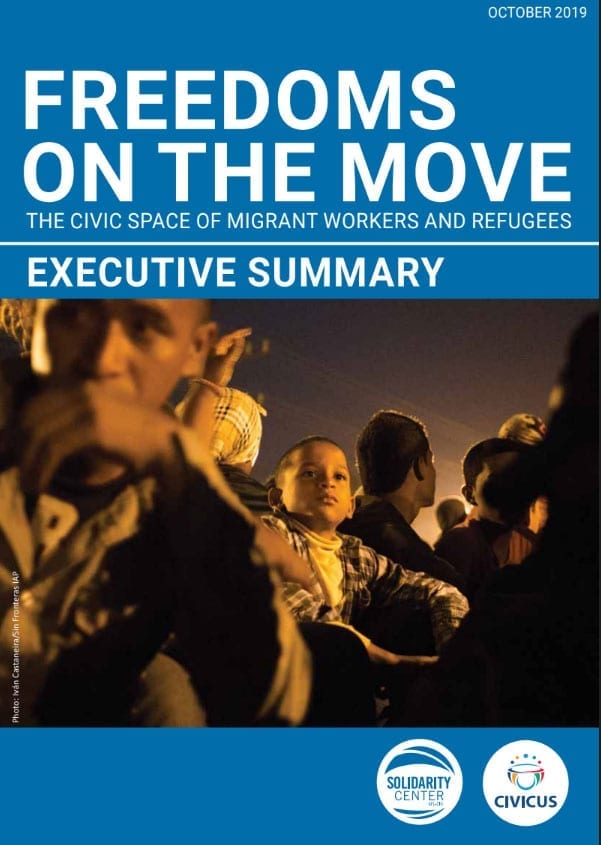
Freedoms on the Move: The Civic Space of Migrant Workers and Refugees
Freedoms on the Move, a new report by Solidarity Center and CIVICUS, makes clear that many migrant workers and refugees want to have a say in their communities and their workplaces, and in the decisions that affect their lives—and is an urgent call to action for...
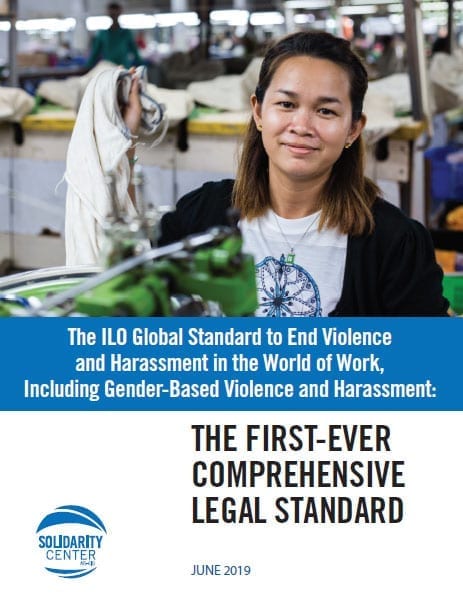
ILO GBV at Work Standard: First-Ever Comprehensive Legal Standard
A Solidarity Center legal analysis shows the proposed ILO convention on gender-based violence and harassment at work is necessary because no global binding instrument exists that comprehensively addresses violence and harassment in the world of work, including...
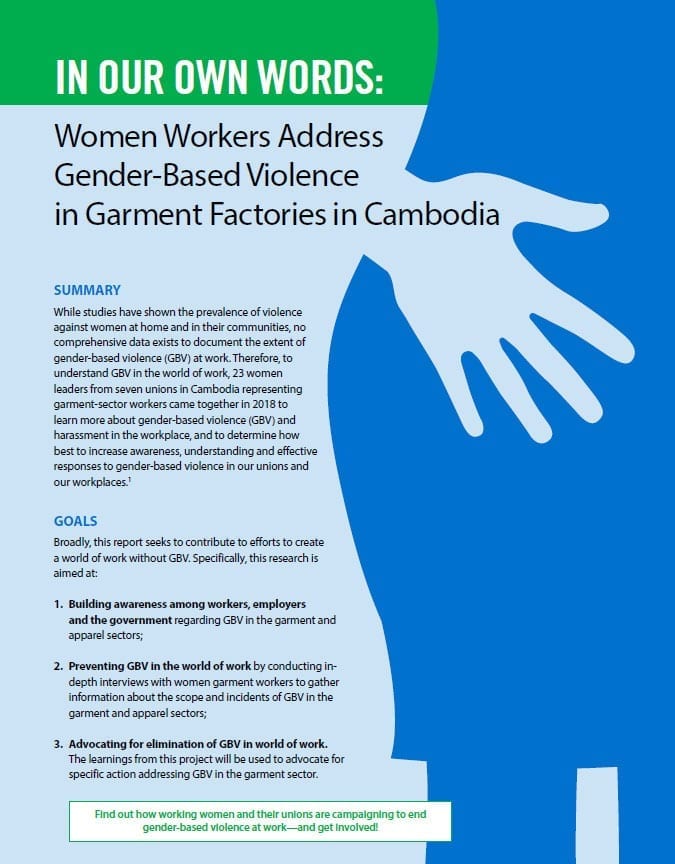
In Our Own Words: Women Workers Address Gender-Based Violence in Garment Factories in Cambodia
While studies have shown the prevalence of violence against women at home and in their communities, no comprehensive data exists to document the extent of gender-based violence (GBV) at work. To better understand GBV at work, 23 activists and female leaders of workers...
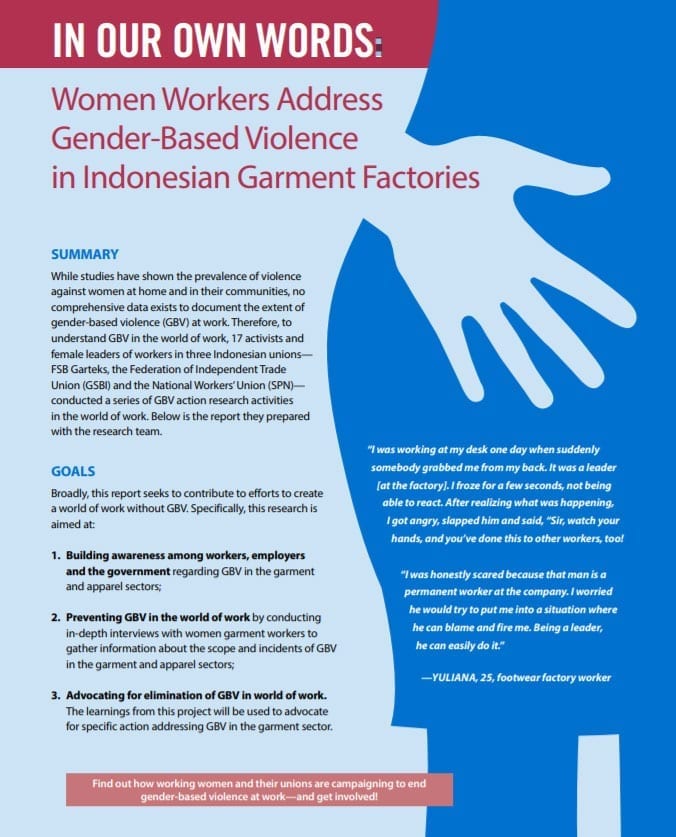
In Our Own Words: Women Address Gender-Based Violence in Garment Factories in Indonesia
While studies have shown the prevalence of violence against women at home and in their communities, no comprehensive data exists to document the extent of gender-based violence (GBV) at work. To better understand GBV at work, 17 activists and female leaders of workers...


